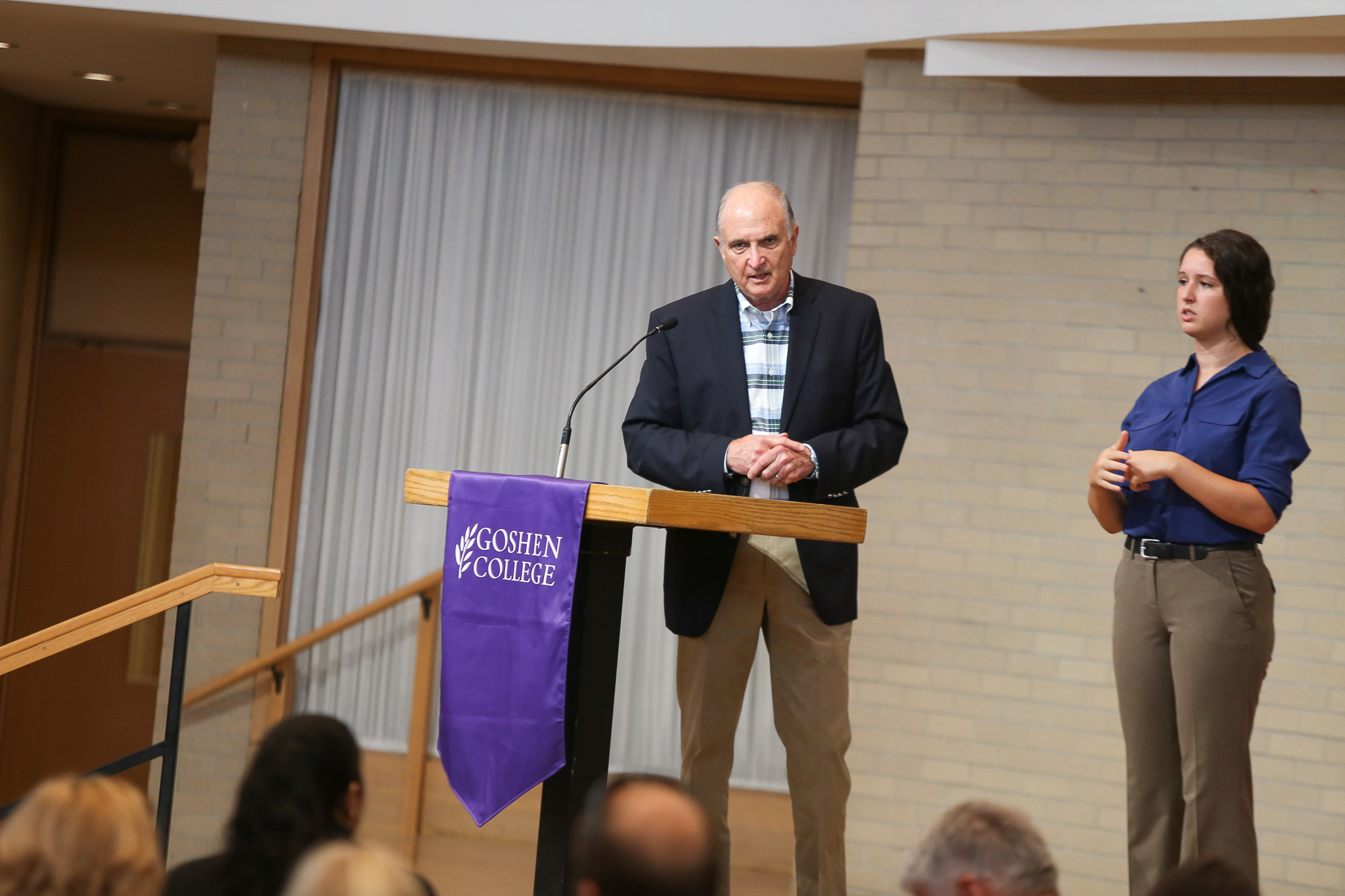“Good morning, and welcome to the climate crisis.”
Jim Poyser, executive director of Earth Charter Indiana (ECI), kicked off the fourth annual Indiana Climate Leadership Summit last Thursday with these words as he addressed those in attendance in College Mennonite Church (CMC) on Goshen College’s campus.This marked the first time that the event was hosted outside of Indianapolis.
Poyser went on to comment on the makeup of the audience, noting his excitement about the nearly 40 high school students present.
Phil Waite, CMC pastor, Goshen Mayor Jeremy Stutsman, and Goshen College President Rebecca Stoltzfus, followed Poyser in welcoming the attendees to the summit.
Two speakers followed the welcome; Dr. Jeff Dukes, who gave a research update from the Purdue Climate Research Center, and Dr. Alan Hamlet of the University of Notre Dame, who spoke on how the power of stories help people relate climate change to their own lives.
Keynote speaker David Orr, professor of environmental studies and politics at Oberlin University in Ohio, wrapped up the morning session with a message on the climate crisis in regards to United States democracy.
In the first quarter of his talk, Orr touched on the topics of generational income gaps, the decline of democracy and gerrymandering, feeding into his main topic of the intersection of climate change and democracy.
Orr stressed the importance of democracy in the climate change conversation by quoting James Hasnen, a climate science professor at the University of Columbia.
“Hansen says, ‘We can’t solve climate as an issue without fixing democracy first,’” Orr said.
Orr went on to talk about the Oberlin Project, a sustainable collaboration between the city of Oberlin, Oberlin College and other partners to create a more sustainable city.
The project’s goals are to develop a 13-acre green arts district, create new business ventures in energy efficiency and shift the college to renewable energy sources.
According to the project’s website, the idea for the Oberlin project was formed from Orr’s vision for full-spectrum sustainability.
Orr showed a slide of the Adam Joseph Lewis Center for Environmental studies that’s located on Oberlin College’s campus.
“[The center] was the first entirely solar-powered, zero-discharge building on a U.S. college campus,” he said.
Orr moved on from speaking about projects affecting his local community to The State of American Democracy, a conference hosted in Oberlin in 2017. The conference’s goal was to host a non-partisan conversation about rebuilding the resilience and fairness of American democracy.
Orr hopes that the conference will have more lasting impacts than just the event itself.
“Our goal is to start a conversation.” Orr said “Democracy is not a matter of when you win once and for all — that doesn’t happen. There’s no final solution in democracy.”
Orr finished up with a final note about involvement politics, summarizing his message of action to the audience.
“There is no way on God’s green earth to be apolitical,” Orr said. “By saying ‘I’m just not political, I’m going to stay out of those issues, I just don’t do politics’– you’re being political. You’re supporting the status quo.”
He encouraged the audience to do something about climate change by getting involved.
Orr ended the presentation by stating his hope that future generations will look back at this moment in history and see what we did about climate change and call it, as Winston Churchill said, “our finest hour.”


